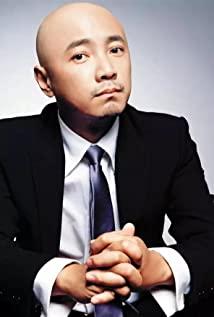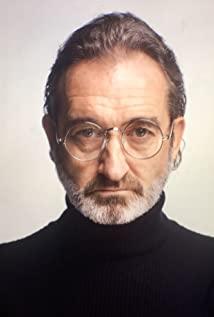Like many movie fans, before I went to watch "I'm Not the God of Medicine", I kept a silent suspense in my heart: How much overlap does this story have with "Dallas Buyers Club", which was a hit Oscar in the past few years? Watching the film seems to be to prove my conjecture.
Thirty minutes before the story unfolded, I breathed a sigh of relief. The two stories may be a bit close in concept, but they follow two completely different lines. "I'm not the God of Medicine" is a bit embarrassing for the restoration of real life. It turns a failed little character with an ambiguous face into a person with "divine nature" little by little, and there is no sense of disobedience.
The stories of "Dallas Buyers Club" and "I'm Not a God of Medicine" both have real life blueprints, but the essential difference is:
"AIDS" in "Dallas Buyers Club" is almost incurable. After the protagonist is sentenced to "death penalty" by the doctor, he can only find a way to survive; in "I'm Not the God of Medicine", leukemia is not necessary to die. It's just that the medicine is too expensive, and most people can't afford it. Patients can only obtain alternatives through other channels to delay the life of the dying.
Therefore, if the story of "I am not the God of Medicine" is placed in developed countries such as Europe, America, Japan and South Korea with a sound social security system, a sound assistance system, and a first-class pharmaceutical industry, its credibility may be reduced, but if it is placed in China, it will become the favorite of many people. Skin pain.
In the movie, Xu Zheng and his small team, from the very beginning, for the sake of money and for their own people, went to "find medicine" by mistake, and finally found their conscience, pushed themselves to others, and became a benevolent "good person", which is revealed from the side. This "skin pain".
Because of the high cost, scarcity of medicines, and even incurable problems, many patients can only bypass the hospital after going bankrupt and go to the hospital to find a cure for their illness. News often appear in the social news of newspapers and websites. "It is better to die than to live" stories of desperately trying to save themselves are not new. "I am not the God of Medicine", what I want to say is more than that.
The story of looking for medicine in the film is not only about curing the disease, but also "healing the heart". Behind the strong atmosphere of realism, what moves people is the strong human touch. The audience will have a sense of substitution, and may presume in their hearts, what should they do if they or their relatives are seriously ill? Can't afford the high cost of medicine, is there only way to wait for death?
The film did not deliberately elevate the role of Cheng Yong played by Xu Zheng, but in the end, in the minds of the audience, it has a nearly "superhero" charm, which is the magic of emotion.
The superheroes in Hollywood commercials only save human beings in the sci-fi world. Here, Cheng Yong saves patients in daily life. He is not a doctor, and he can be saved or not, but in the end he chooses to save, and he is more human than many doctors.
Cheng Yong is not perfect, failed in marriage, failed in his career, greedy for money, lustful, easy to satisfy, easy to swell, but he has kindness and basic bottom line. Compared with Zhang Changlin's unscrupulous businessman who is completely obsessed with interests and unscrupulous, they are two types of people.
Therefore, it is impossible for Zhang Changlin to become Cheng Yong, but when Cheng Yong was about to become Zhang Changlin, he quickly woke up, stepped on the brakes in time, and consciously and voluntarily stood on the side of the patient, at his own risk, not on money on the other side. This is self-redemption as a failed father and useless son, who is also "healing the heart".
"I'm Not the God of Medicine" not only has a credible story, but also has an excellent performance. These people seem to be ordinary people living by your side.
Starring Xu Zheng's several personality changes and inner choices, there are layouts, struggles, layers, and relief, it is a little bit of penetration, and what he says and does is not abrupt.
In the past roles, Xu Zheng's comedy image has been deeply rooted in the hearts of the people. This is a serious drama. It is a transformation of Xu Zheng into a butterfly. The story has a certain sense of humor, but it is a bit sad. Xu Zheng's performance can be compared with Huang Bo's. Compared with "Bull Fighting", it is expected to win at film festivals such as the Golden Horse Awards.
The supporting roles, Wang Chuanjun, Tan Zhuo, Zhang Yu, and Yang Xinming, are also remarkable. Each character has a distinct personality, has edges and corners, and will forget it immediately after reading it.
Real-life movies, how to write, how to shoot, and where are the boundaries? It is the sword of Damocles that has been hanging over the creator's head, and it seems that it will slam down if he is not careful. Therefore, there are thousands of people who have all kinds of strange creative ideas, but in the end, there are very few people who can shoot them.
I didn't expect "I'm Not the God of Medicine" to be like a tightrope walk. It's skilled, stable, and confident. It plays someone else's story. The audience sees what happened to them. After watching it, there is a burning unspeakable. empathy.
Movies are movies after all, no matter how realistic they are, they have their rhythm and grammar. In the past, many realism themes, influenced by documentaries, were either dull and dull, too sensational or bitter; way to present.
On this point, "I'm Not the God of Medicine" has done a good job. The shots are flexible, the editing is smooth and comfortable, the tones are vivid and bright, the whole film is just right, and it maintains a very good rhythm. Every point is just right, without the slightest It's boring, and it draws on the narrative logic of commercial films.
The keynote respects the reality, but does not exaggerate the reality too much. There is joy in bitterness and affection in bitterness, and there is no cheap sensationalism and sadness.
From the point of view of the industry's big names supporting the new director, Ning Hao and Xu Zheng discovered the treasure of Wen Muye this time, and made their due contributions to make him shine and shine.
If you look at it at the level of a director's debut, Wen Muye's "I'm Not the God of Medicine" is almost five-star level.
To say the regret of the film, it may be the ending. Is there only one way to choose? Is there no other possibility?
Perhaps this is the best result. Just like the patients in the film have no choice, there may not be too many choices in the film.
There is no choice, so two-by-two care is the best realism footnote.
View more about Dying to Survive reviews











